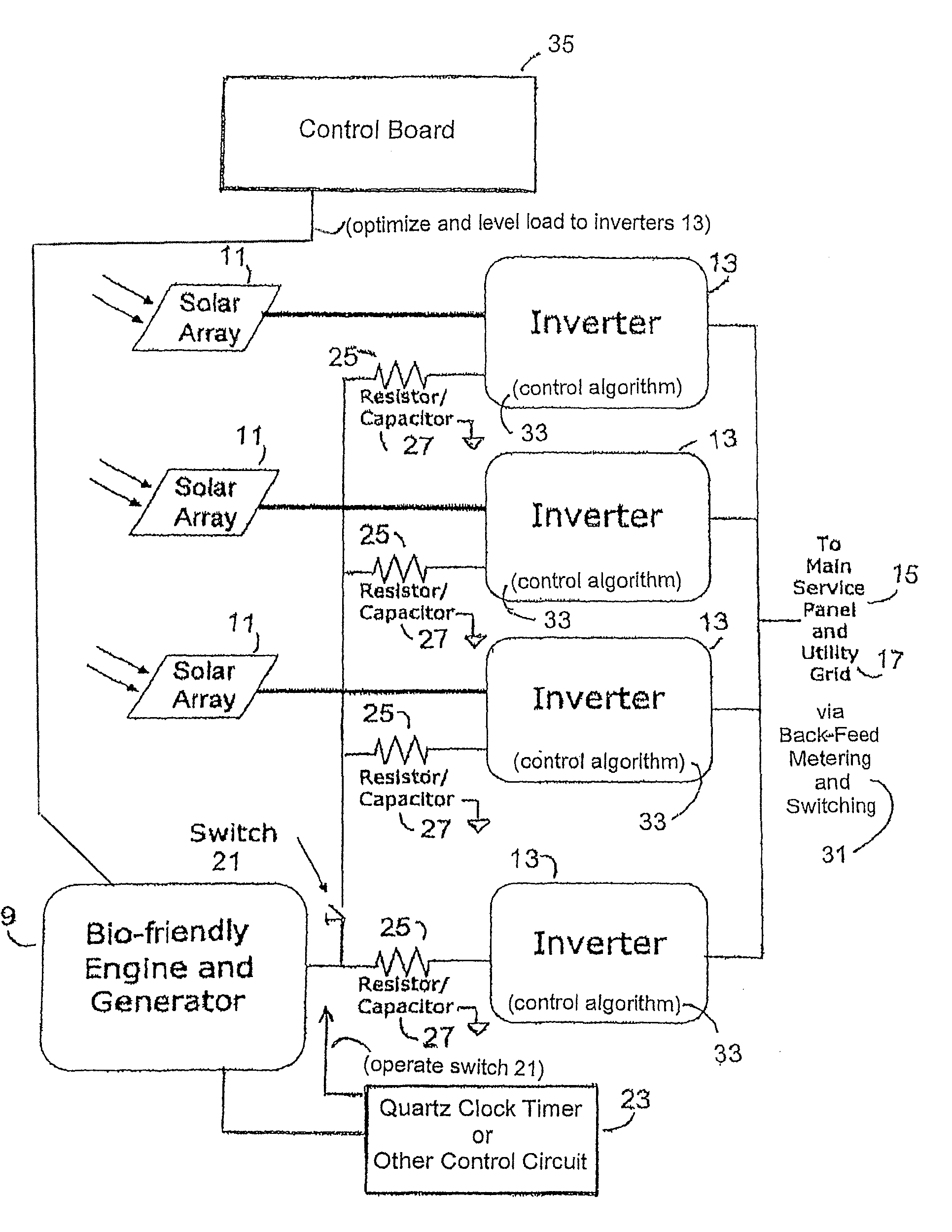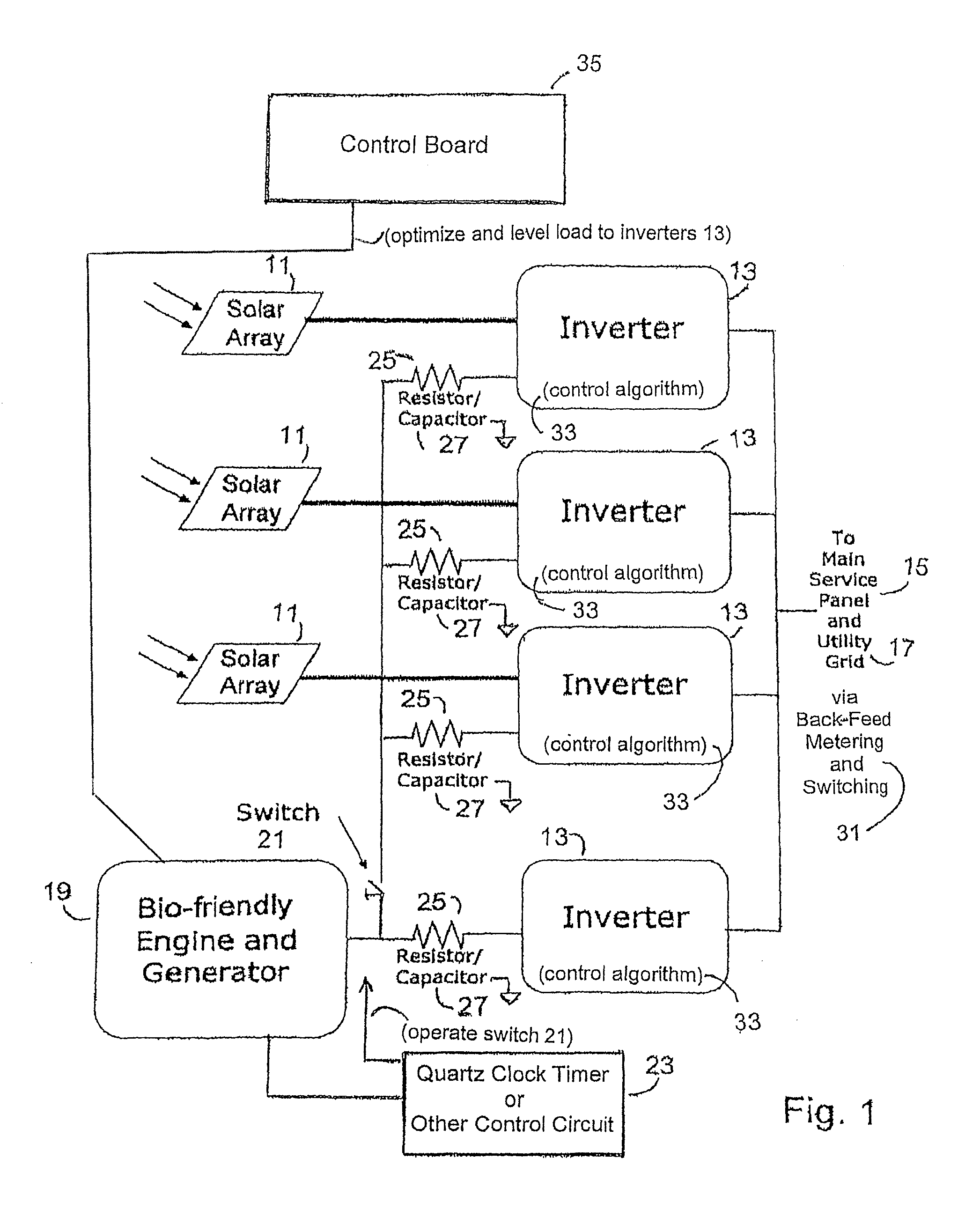Integrated voltaic energy system
a technology of integrated voltaic energy system, which is applied in the direction of dc-ac conversion without reversal, emergency power supply arrangement, batteries, etc., can solve the problems of low output efficiency and high cost of solar equipment, and achieve the effect of improving the cost-effectiveness of each type of system
- Summary
- Abstract
- Description
- Claims
- Application Information
AI Technical Summary
Benefits of technology
Problems solved by technology
Method used
Image
Examples
Embodiment Construction
[0012]An integrated voltaic energy system utilizes a bank of a plurality of photovoltaic (PV) solar panels 11, FIG. 1, operating in parallel, as a source of DC electrical energy when the level of light intensity (irradiance) falling on them is sufficient. The output of each respective PV solar panel is normally fed to a respective one of a bank of inverters 13, also connected in parallel to an output. The output from the bank of inverters 13 is connected to the main service panel 15 of the local facility and to the utility grid 17, using standard back-feed metering and switching 31.
[0013]An engine and generator unit 19, provides sufficient power to be a substitute for the total aggregate power supplied by the bank of individual PV solar panels 11, when the panels 11 are inoperative. The engine and generator unit 19 is throttled back to produce the power equivalent to an individual PV solar panel 11 when the solar panels 11 are producing. During this time the engine-generator 19 is c...
PUM
 Login to View More
Login to View More Abstract
Description
Claims
Application Information
 Login to View More
Login to View More - R&D
- Intellectual Property
- Life Sciences
- Materials
- Tech Scout
- Unparalleled Data Quality
- Higher Quality Content
- 60% Fewer Hallucinations
Browse by: Latest US Patents, China's latest patents, Technical Efficacy Thesaurus, Application Domain, Technology Topic, Popular Technical Reports.
© 2025 PatSnap. All rights reserved.Legal|Privacy policy|Modern Slavery Act Transparency Statement|Sitemap|About US| Contact US: help@patsnap.com


